Russian soldiers in Chernobyl suffering from radiation poisoning
Several Russian soldiers in Chernobyl have fallen sick with radiation sickness after digging trenches in contaminated forests.
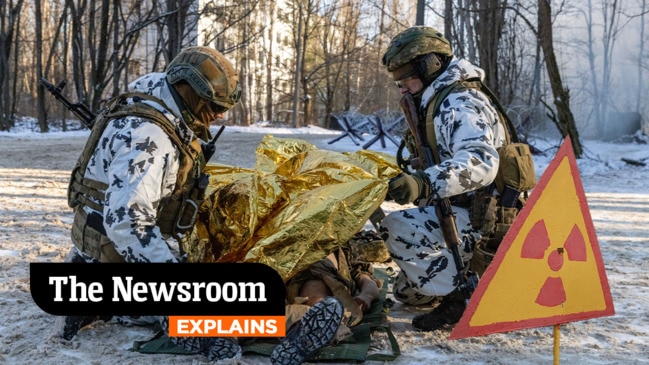
Dozens of Russian troops stationed at the Chernobyl nuclear site in Ukraine have reportedly been struck down with radiation sickness after digging trenches in the contaminated forests.
Seven buses of soldiers suffering from acute radiation syndrome were taken from the exclusion zone to a hospital across the border in Belarus, The Sun reports.
Chernobyl was captured in the opening days of the current invasion of Ukraine by Russian President Vladimir Putin’s troops. However it was the site of a nuclear disaster in 1986 when a reactor exploded, contaminating the surrounding area.
As Russian soldiers took hold of the site, it sparked fears of a major radioactive disaster as a result of heavy fighting around the plant.
Already, just three days after entering the area, the disturbing of soil by military vehicles saw radiation levels spike.
It also has been alleged Russian troops dug trenches in the highly toxic Red Forest zone, according to UNIAN News Agency.
And according to workers at the site, Russian soldiers drove their tanks and armoured vehicles without radiation protection through the area – kicking up clouds of radioactive dust.
A Chernobyl employee branded their actions as “suicidal” because the dust they inhaled was likely to cause internal radiation in their bodies.
The two Ukrainian sources said soldiers in the convoy did not use any anti-radiation gear while in the Red Forest – the most contaminated part of the zone around Chernobyl.
Yaroslav Yemelianenko, an employee at the Public Council at the State Agency of Ukraine for Exclusion Zone Management, said Russian troops were taken to the Belarusian centre of radiation medicine in Gomel.
“Digging the trenches in the Rudu forest?” he wrote on Facebook. “Now live the rest of your short life with this.
“There are rules of handling this territory. They are mandatory to perform because radiation is physics – it works regardless of status or chases.”
Stream the latest news on the war in Ukraine live & on demand on Flash. 25+ news channels in 1 place. New to Flash? Try 1 month free. Offer ends 31 October, 2022 >
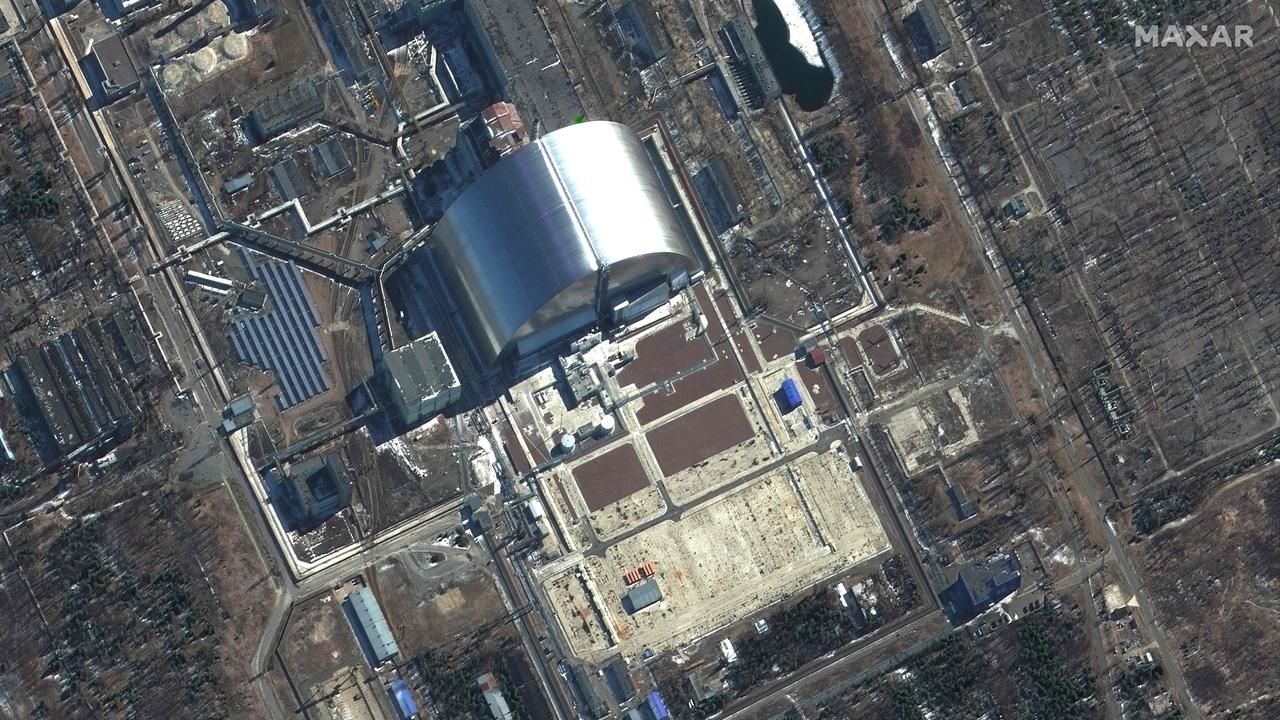
The sick troops were reportedly taken to Belarus in seven buses amid reports that “ghost buses” are secretly shipping the war-ravaged dead bodies of teen Russian soldiers out of Ukraine.
The corpses of Russian soldiers are reportedly being taken back to Russia via Belarus in special planes, trains and buses at night to avoid attracting attention.
Passengers at a train station in Mazyr in Belarus were “shocked” at the number of bodies being loaded up – while hospital staff elsewhere warned of “overflowing” morgues.
Russian troops seen heading to Belarus
The reports of radiation sickness come after US military sources claimed Russian forces are withdrawing from Chernobyl nuclear site and walking back towards Belarus in a major climbdown.
“Chernobyl is [an] area where [the Russians] are beginning to reposition some of their troops,” a Pentagon official said.
They added that the Russians are “leaving, walking away from the Chernobyl facility and moving into Belarus”.
The official went on: “We think that they are leaving. I can’t tell you that they’re all gone.”
Earlier on Wednesday, Pentagon press secretary John Kirby said the US had seen Russian troops around the capital Kyiv moving north towards Belarus.
He was quick to stress that the US didn’t see this as a withdrawal, but as an attempt by Russia to resupply, refit and then reposition its troops.
“We don’t know exactly where these troops are going to go,” he said.
Radioactive material stolen from Chernobyl
Earlier this week, it was reported that radioactive material was stolen from the site of the damaged nuclear power station.
In the wrong hands, there is a low risk the materials could be used to create a “dirty bomb”, military experts told Live Science.
A dirty bomb is a device that combines radioactive material with a conventional explosive.
The looters also swiped radioactive isotopes from a lab used to monitor radiation levels at the site.
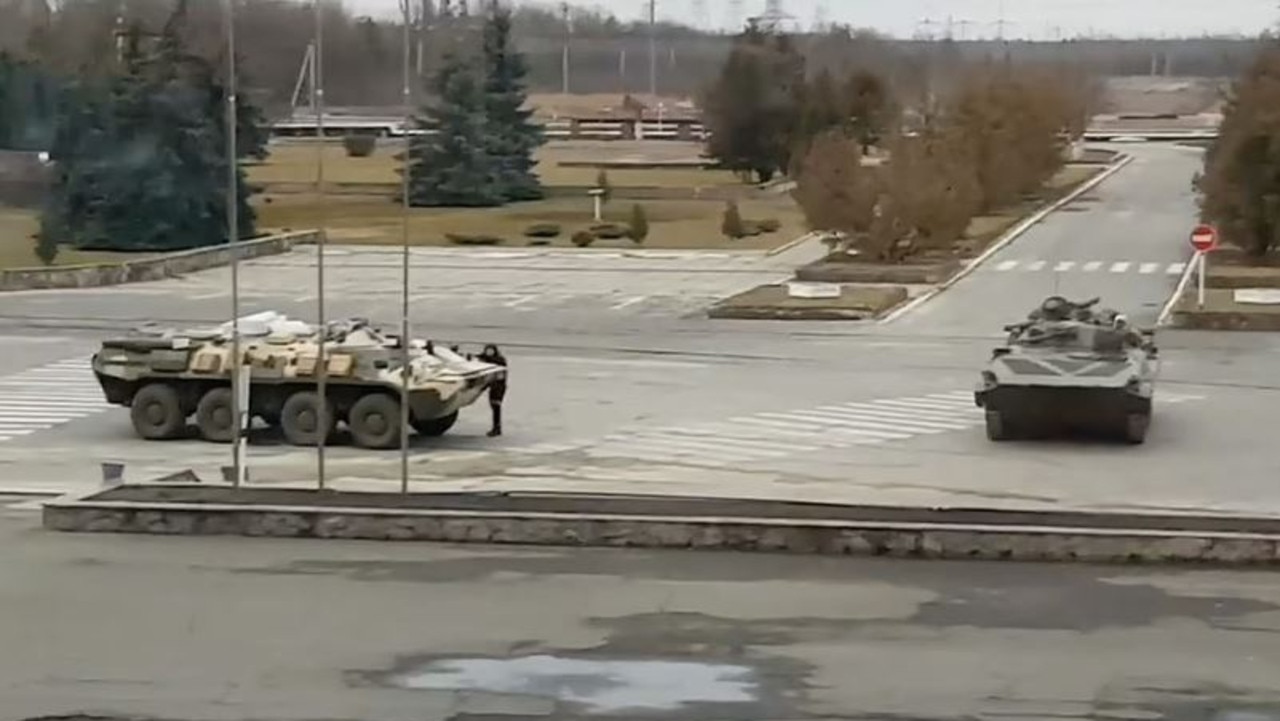
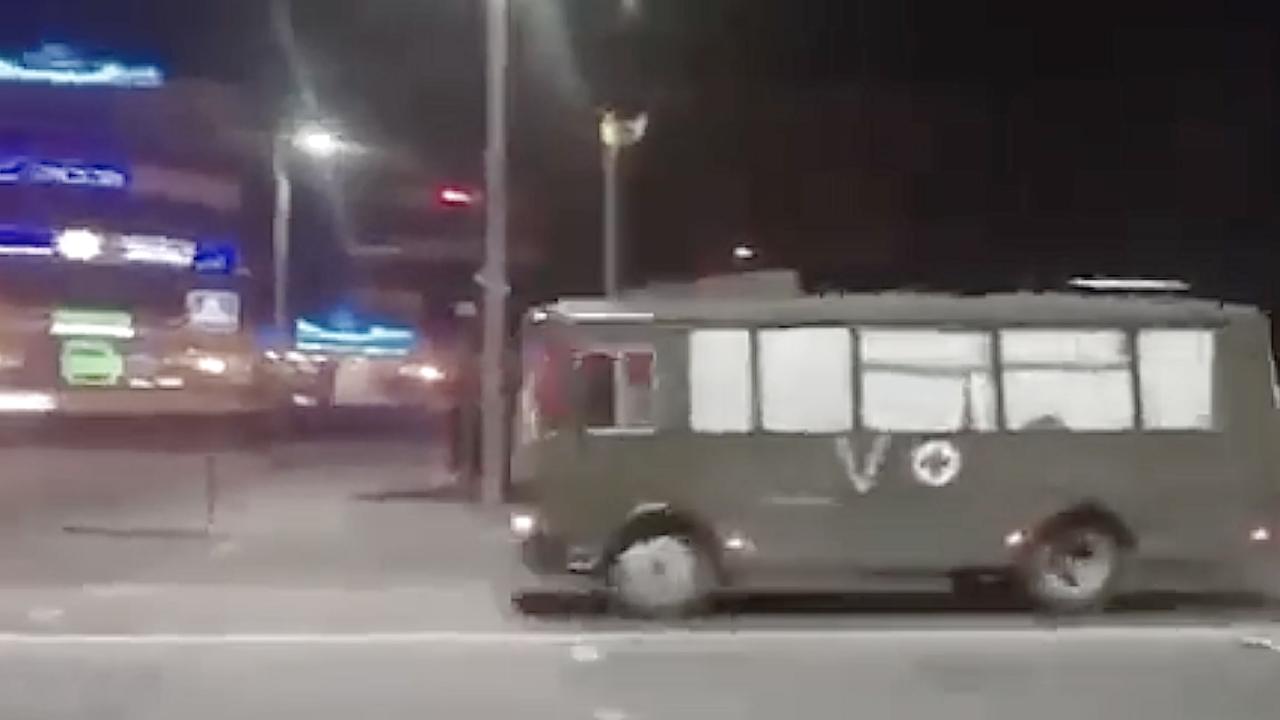
Ukraine’s State Agency blamed Russian troops for stealing “unstable” nuclear samples from Chernobyl after ransacking a lab.
They are believed to have then destroyed the November Central Analytical Laboratory which was full of nuclear waste and located in the radioactive exclusion zone.
The agency said the stolen radionuclides are “highly active”.
Radionuclides are unstable atoms of chemical elements that release radiation. The fact these are now in the hands of the Russians is a major concern.
It said it hoped Russian troops “will harm themselves and not the civilised world” with the stolen items.
In a statement, the agency said: “The laboratory contained highly active samples and samples of radionuclides that are now in the hands of the enemy.”
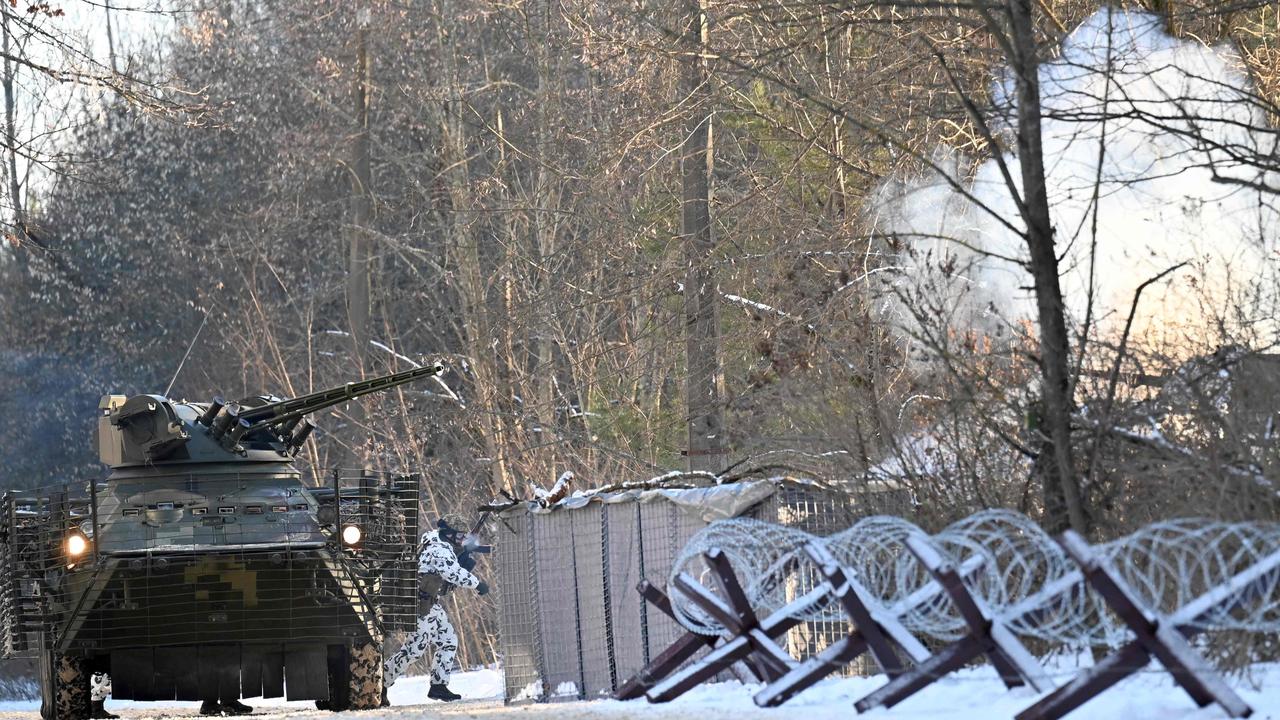
Fears as contact lost with nuclear site
Earlier this month, Ukraine lost all contact with Chernobyl sparking fears of a potentially dangerous loss of power at the site.
Chernobyl lies 130km north of Kyiv on a strategic route into the capital from Belarus, where 30,000 Russian troops are stationed.
Soldiers were said to be fighting close to the giant sarcophagus which is sealing in the damaged reactor.
Following the Russian takeover, the facility lost power, and backup generators with just two days’ worth of fuel were left to run the complex.
Chernobyl workers were taken hostage by Russian troops, presenting another major risk to the day-to-day running of the site.
With the condition of the former power plant’s nuclear storage facilities “unknown” at the time, there were fears of a dangerous radiation leak following heavy fighting between Russian and Ukrainian forces.
A day after the takeover, Chernobyl radiation levels spiked, according to Ukrainian authorities.
Ukraine’s State Nuclear Regulatory Inspectorate blamed the spike on a “disturbance” caused by Russian forces rolling through.
It said the “large amount of heavy military equipment through the exclusion zone” had unsettled the topsoil at the sensitive site.
Officials warned it had resulted in “the release of contaminated radioactive dust into the air”, but said the rise was so far “insignificant”.
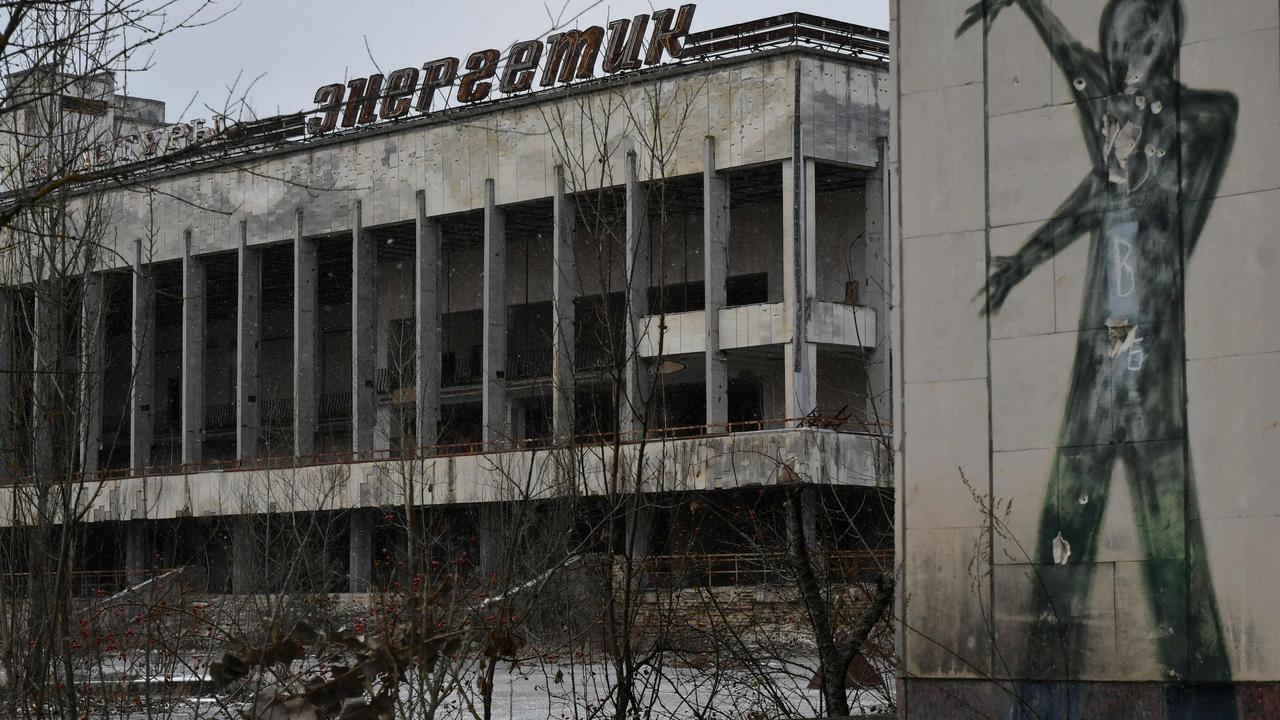
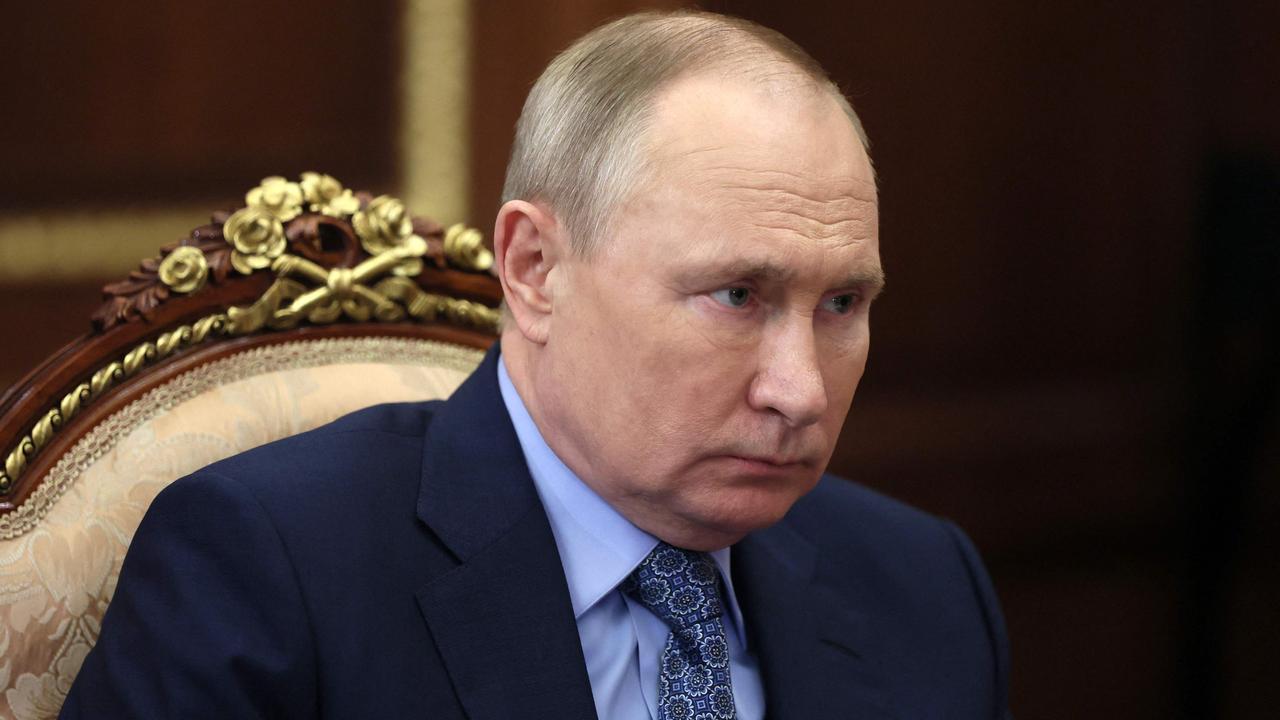
Just last week, wildfires around Chernobyl sparked by Russian shelling scorched 10,000 hectares of forest.
Ukraine’s Deputy Prime Minister Iryna Vereshchuk accused Russia of “irresponsible” acts around the Chernobyl power station as she urged the United Nations to dispatch a mission to assess the risks.
She claimed Russian forces were preventing firefighters from bringing large numbers of fires in the zone under control.
“In the context of nuclear safety, the irresponsible and unprofessional actions of Russian servicemen present a very serious threat not only to Ukraine but to hundreds of millions of Europeans,” Ms Vereshchuk said on her Telegram account.
Ukraine’s human rights commissioner Lyudmila Denisova warned an increased level of radioactive air pollution could threaten neighbouring countries.
“Control and suppression of fires is impossible due to the capture of the exclusion zone by Russian troops,” she wrote on Facebook.
“As a result of combustion, radionuclides are released into the atmosphere, which are transported by wind over long distances. This threatens radiation to Ukraine, Belarus and European countries.”
The politician warned that failing to intervene could see “irreparable consequences” for “the whole world”.
“Catastrophic consequences can be prevented only by immediate de-occupation of the territory by Russian troops,” Ms Denisova said.
The April 1986 reactor explosion and fire killed at least 31 and spewed a huge cloud of radioactive particles into the air.
It blew across Europe and rained down over thousands of square kilometres.
The Chernobyl site is still protected by a large exclusion zone where people can only visit for short periods to avoid high doses of radiation.
This article originally appeared in The Sun and was reproduced with permission





